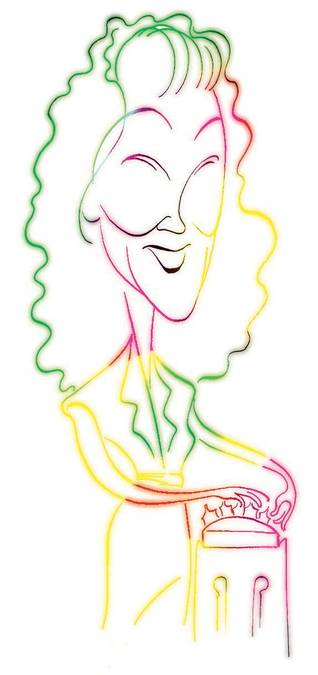Tuesday, Nov. 17, 2009 | 2 a.m.
IF YOU GO
- Who: Hiroshima — 30th Anniversary Tour
- When: 8 p.m. Saturday
- Where: Santa Fe Station
- Tickets: $27.95-$39.95; 495-3594or go to stationcasinos.com
Sun Coverage
Beyond the Sun
June Kuramoto remembers returning to Japan for the first time with the jazz fusion group Hiroshima.
She was just 6 years old when she and most of her family moved to Los Angeles.
When Hiroshima was invited to play concerts in Japan about 20 years later it was a dream come true, Kuramoto says. But the homecoming wasn’t what she thought it would be.
“I felt like an alien,” she says. “I realized I was not Japanese Japanese.
“The country was not what I remembered, because they had modernized so much. What I remembered as a little girl was the countryside. When I saw ‘Teahouse of the August Moon,’ the opening scene was the Japan I remembered.”
During that concert tour 28 years ago she discovered something about herself and about her cultural roots.
“I realized that the culture is so much deeper and so much more refined than I knew,” says Kuramoto, a master of the koto, a stringed instrument.
Hiroshima has been blending koto and other traditional Japanese sounds with jazz, R&B and world music for more than 30 years. The group performs Saturday at Santa Fe Station.
Kuramoto explains how she came to study koto in the United States.
She arrived here with her mother and three siblings. Her father, who was born in the United States, remained in Japan.
“He was born and raised in Orange County but he went to Japan after high school and got his college degree there,” Kuramoto says. “While he was there World War II broke out and he couldn’t return to the United States.”
There’s a family story, which may or may not be true, that he couldn’t return to his native country because he couldn’t find his U.S. citizenship papers. Kuramoto says it would have been tough for her father to make a living in the United States, so he remained in Japan.
“All four of us children were born in Japan but my father wanted us to be educated in the United States and so he sent his family here,” she says. “It was a tough transition for me. I had a hard time in school because I didn’t speak the language, so I was very behind.”
Her mother became involved in a social welfare organization that helped immigrant families make the transition to American life. By chance Kazue Kudo, one of the world’s most renowned koto instructors, performed at one of the meetings and was looking for a place to teach.
When 7-year-old June saw Kudo playing Japan’s traditional instrument, she decided that’s what she wanted to do.
“I told my mother I wanted to learn to play the koto and so she approached Kazue and offered her our house to teach in, in exchange for giving me free lessons,” Kuramoto says.
“Music became an escape for me. And the koto became my connection to Japan. In those days I thought I was going back to Japan some day.”
While she was growing up, her peers made fun of her for playing the koto.
“But I thought if I could contemporize, could put this instrument into a modern contemporary setting, then people could hear the beauty of this instrument,” she says.
She helped form Hiroshima with her future husband, Dan Kuramoto, during the political, social and cultural upheaval of the early ’70s.
“We thought it would be wonderful to create a group Asians could identify with,” she says. “We wanted to break away from the stereotypical images of the Charlie Chans and glasses and buck teeth — all the negative images that had been portrayed. We wanted to create some positive.”
They chose the name Hiroshima — one of two cities destroyed by atomic bombs — because they felt they were children of the atomic age.
“We learn from the negative and we can make the negative a positive and send a message of peace,” she says.
The group’s self-titled first album sold more than 200,000 copies in the first three months after its release in 1979. The band has released 17 albums and carved out a unique niche blending jazz and ethnic music. Its most recent release, “Legacy,” came out in August and features 11 songs from the first 10 years of Hiroshima’s work.
June Kuramoto says the band is always changing. Dan Kuramoto plays flute and saxophone. Drummer Danny Yamamoto remains from the original group and bassist Dean Cortez played on the first record. The current lineup also includes Kimo Cornwell on keyboards and Shoji Kameda on taiko and percussion.
“I think I have lived too long to think there will never be changes, but taking the positive, changes can be good,” Kuramoto says. “We would like to expand ourselves.”
Santa Fe Station is located in northwest Las Vegas, minutes away by car from the Strip, from Red Rock Canyon and Mount Charleston. The hotel offers one of the best values with 200 rooms.
The 64,000-square foot casino has more than 2,700 slots, 39 table games, a 24-hour, nine-table poker room, a race and sports book, a 432-seat bingo room and keno.
Dining options include the Feast Buffet with tastes from around the world, The Grand Cafe, serving up comfort food in a casual environment 24 hours a day. The upscale Charcoal Room boasts an extensive wine list.
Entertainment can be found in the Chrome showroom, featuring rock, country, jazz and blues acts, at Revolver Saloon and Dance Hall and at 4949 Lounge.
Santa Fe also offers a 60-lane bowling center, a 13-screen movie theater and supervised child care at Kids Quest.


Join the Discussion:
Check this out for a full explanation of our conversion to the LiveFyre commenting system and instructions on how to sign up for an account.
Full comments policy